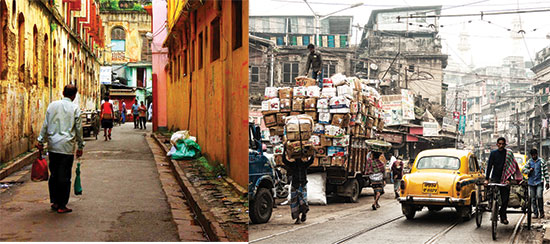Blitz Bureau
NEW DELHI: DEMOCRACY has introduced an extra season to the Indian year, an unsteady season which skips across the calendar. The steady five are familiar: charming winter, exuberant spring, punishing summer, audacious monsoon. The fifth is festivals, between the last rains and the first smell of cool air, a month of delight in October-November when we set aside the fraught tensions of daily existence to honour the hope that defines every faith.
We must thank our idealistic Constitution for the sixth: election season. It began as a semi-decade ritual, and voters dressed in their finery to celebrate freedom of choice. Naturally, being good Indians, we wanted more of the best. Elections now come around every year in some Assembly or the other. Their objective is local, but their subject is national. If fury is concentrated on the battleground, the sound travels across the land into cafés and get-togethers. We enjoy being partisan, which keeps our democracy in good health. Indifference is the death of democracy.
Assembly elections hop across the country like an untethered goat among crags, rife with the heat inherent in any struggle for power. This heat becomes a chill on the fortunes of the defeated, while the winner savours its pleasures for a day and then starts to ponder the many meanings of a pyrrhic victory till the next election comes round.
Status quo advantage
Is it already five years since the last election in Bihar? Why does 2025 seem like a desultory revival of so many past Bihar elections: similar if not the same names, a parrot rhetoric spiced up by the demands of hyper-ventilating social media? There is of course some new flash in the pan, armed with ambition and supplied with funds; the moniker might change but not the syndrome.
Since no challenger has anything very new to offer, the advantage must be with the status quo. So far in the Bihar campaign the only discussable difference is the opposition’s offer to remove prohibition, but I imagine that is a bit of a non-sequitur since prohibition has never kept anyone from his favoured tipple. If it can’t come from a shop it will come from a bootlegger. The more stringent the law, the bigger the leg of the boot, and the happier the face of law enforcement.
Once the Bihar race is settled; in next March, with winter gone but summer still hesitant, electoral volatility will strike Bengal. The sixth season is relentless.
Elections come every year, in some Assembly or the other
Someone will win in Bengal too, but the state seems lost: lost in a morass, hapless, helpless, perhaps even hopeless, which depresses me for I was born in Bengal and spent the happiest years of my life in Calcutta. I belong to Calcutta. There is a touch of magic in Calcutta’s history and its heart that casts a special spell from the onset of the Pujas at the end of monsoon to the dusk of winter in February.
A crumbling city
All the lights strung over the main streets to celebrate the Pujas cannot hide the shadows that now darken the lost urban circles in a city that commanded an empire but is now crumbling brick by brick like the mansion of yesterday’s zamindar. The sheen of Calcutta was once the cynosure of movie screens, the theme of high literature and enchanting music: the late Ustad Amir Khan said that you could not be considered a great classicist until the Calcutta audience had recognised your talent. Calcutta had a high society that knew how to get high with decorum. Its thoroughfares were synonymous with fabulous entertainment and extraordinary cuisine; its bylanes served a multiplicity of tastes, interspersed with semi-safe havens for ingenious crime. Ingenuity was important to self-esteem; even the criminal could not be mundane.
Enveloped within the arteries of Calcutta lies a series of large mohallas, residential clusters with defined demographics. I visited my sister in one of them, and emerged deeply depressed. The area is stuck at some mid-point in the 20th century, with the urban amenities we take for granted elsewhere a fluctuating reality.



